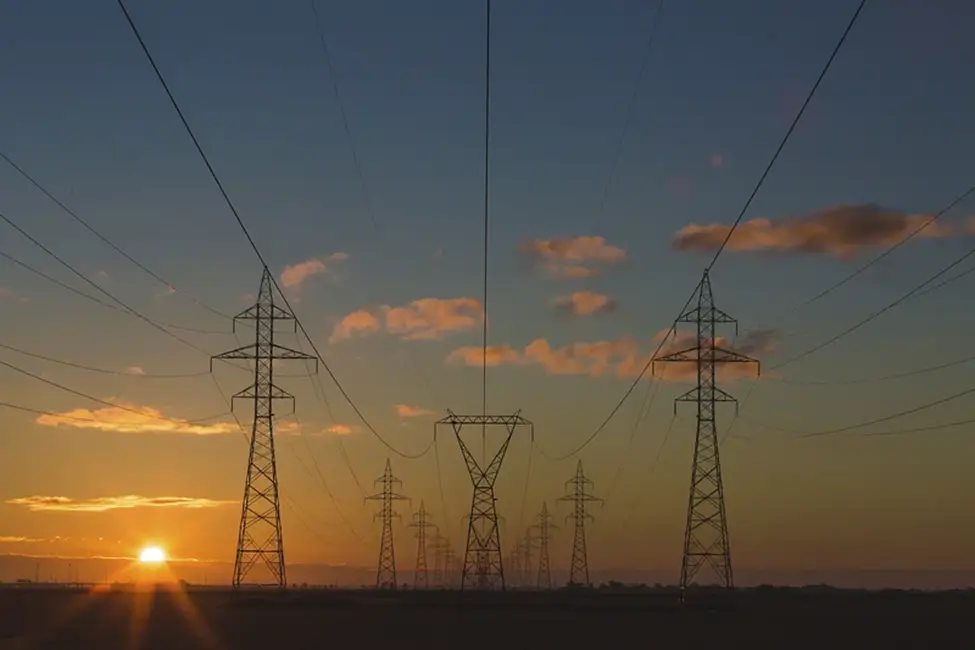Attribution: theenergy.coop
In an age of accelerating climate crises, technological advancement, and growing global energy demand, how we generate, distribute, and consume energy has shifted from a technical question to an ethical one. The physics of energy tells us what can be done, while ethics and philosophy help us decide what should be done.
The Physics of Power: Constraints and Opportunities
At the heart of all energy-related discussions lies the first law of thermodynamics, which states that energy cannot be created or destroyed and that energy can only be transformed from one form to another. This principle governs every engine, solar panel, and power grid on the planet. The second law of thermodynamics, or entropy, reminds us that every energy transformation increases disorder in the universe and reduces the amount of usable energy.
These laws help us understand why fossil fuels have been so attractive: they are dense, easy to handle, and easy to burn. But they also release massive amounts of carbon dioxide, driving climate change. Physics can quantify this impact in terms of greenhouse gas emissions, ocean temperature rise, or the melting rate of polar ice, but it cannot tell us what to do about it.
That’s where ethics enters the discussion.
Utilitarianism and Sustainability
Utilitarianism, a philosophical framework constructed by philosophers such as Jeremy Bentham and John Stuart Mill, holds that the morally right action is the one that produces the greatest overall happiness (the greatest amount of good for the greatest number of people). Applied to energy policy, this framework urges us to consider how each action affects the long-term well-being of humanity and the environment.
Under a utilitarian framework, coal-fired power plants may have once seemed justified: they supported rapid industrial growth, lifted billions out of poverty, and powered cities. But today, the calculus shifts as the long-term harms of rising sea level, extreme weather, and climate-related migration outweigh the benefits. With such consequences in mind, continuing to rely solely on fossil fuels becomes a more controversial issue.
Thus, the Utilitarian framework favors clean energy transitions, carbon taxes, and investments in renewables, for their environmental benefits and the reduction of climate-caused suffering across generations. Justice under utilitarianism is not equality, though; it is a form of outcome optimization. Because of this outcome-based justice, this raises a question: whose happiness counts more? Shouldn’t the opinion of the minority matter too?
Virtue Ethics and Sustainability
Virtue ethics, by contrast, focuses on character rather than outcomes. Virtue is a moral excellence or character trait, like courage, justice, or temperance, that guides ethical behavior according to reason. Rooted in Aristotle’s idea of eudaimonia (human flourishing through virtue and reason), virtue ethics asks what kind of person or society we should be. What virtues guide a morally responsible energy user, then?
Temperance encourages moderation in consumption, driving less, insulating homes, and using public transit. Justice demands that we consider who bears the burdens of our energy decisions: low-income communities near oil refineries, future generations inheriting an unstable climate, or Indigenous peoples displaced by hydroelectric dams. From this view, sustainability is an effective expression of virtue.
The Intergenerational Dilemma
Perhaps the deepest ethical issue is temporal, as we consume energy now, but its consequences slowly unfold over decades or centuries. Physics models can predict these timelines with increasing precision as rising CO₂ levels correlate with measurable warming over 30–50 years, but ethical theory is still grappling with how to weigh future lives against present comforts.
Do future people deserve the same moral consideration as we do? Utilitarian thinkers have argued yes. Harming future generations through inaction is no less wrong than harming someone alive today. Yet political and economic systems rarely reflect this logic. Short-term interests often dominate.
This creates a moral lag and gap between what we know through science and what we do through policy. Philosophy’s task is to help us close that gap, to understand intergenerational justice.
The Costs of Clean Energy
Even if we agree that clean energy is ethically necessary, questions of cost remain. Who pays for solar panels? Who gets reliable electricity? Who controls resources like lithium and cobalt that are essential for batteries but are often mined under exploitative conditions?
Ethical energy policy must not be solely focused on reducing carbon emissions, but doing so in a fair and just manner. It must recognize that not all societies are equally impacted by the current crisis, and that climate adaptation and energy access are costly commodities. We must balance sustainable development with the interests of all of humanity as we continue to take care of the world we live in.

